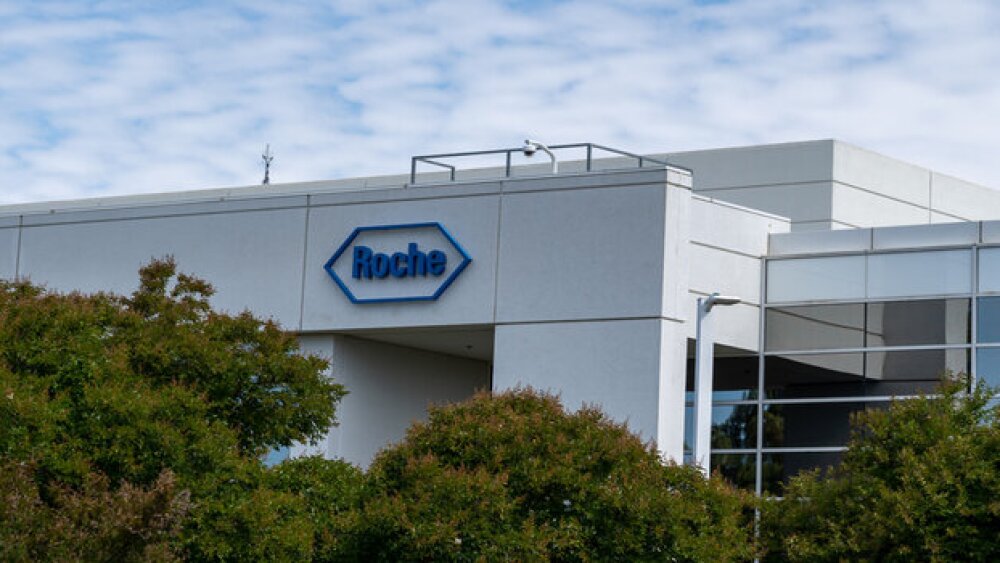The Swiss drugmaker gains rights to RVT-3101 in the U.S. and Japan. Telavant was formed in late 2022 by Roivant and Pfizer, which had a 25% stake in the venture and retains rights to the antibody in other countries.
Pictured: Roche Diagnostics headquarters in California/iStock, JHVEPhoto
Roche on Monday announced a definitive agreement to acquire Roivant’s subsidiary Televant Holdings, granting the Swiss drugmaker ownership of the investigational anti-TL1A antibody RVT-3101 which is being developed for inflammatory bowel diseases including ulcerative colitis and Crohn’s disease.
Under the agreement, Roche is making an upfront payment of $7.1 billion and providing a near-term milestone of $150 million. The companies expect to close the deal in the fourth quarter of this year or the first quarter of 2024.
Roche will have full rights to develop and manufacture RVT-3101, as well as commercialize the product, pending clinical success and regulatory approval in the U.S. and Japan. Outside of these countries, the commercial rights to RVT-3101 will still belong to Pfizer, which was working with Roivant to advance the candidate.
RVT-3101 is a monoclonal antibody that works by inhibiting the TL1A cytokine, which modulates the site and severity of inflammation and fibrosis by stimulating the TH1 and TH17 pathways, according to Telavant’s website. In previous non-clinical studies, RVT-3101 demonstrated the ability to neutralize TL17A signaling.
The molecule recently cleared the Phase IIb TUSCANY-2 study in moderate-to-severe ulcerative colitis, with data released in June 2023. In the mid-stage study, treatment with the optimum dose of RVT-3101 induced clinical remission in 36% of patients after 56 weeks of treatment. Endoscopic improvement at the same time point was 50%.
Roche is “committed” to advancing RVT-3101 to late-stage development with a global Phase III study, according to the company’s announcement on Monday. Group CEO Thomas Schinecker said in a statement that RVT-3101 has “transformational potential” for the care of patients living with inflammatory diseases, and possibly other diseases.
In December 2022, Pfizer and Roivant joined forces and formed Telavant to develop and commercialize RVT-3101, which was initially a Pfizer molecule dubbed PF-06480605. Under that agreement, Roivant owned 75% of Telavant, while Pfizer had a 25% stake in the venture. In July 2023, rumors started circulating that Roche was interested in RVT-3101.
Following Monday’s deal, Roche will now also own Pfizer’s stake, CEO Teresa Graham confirmed to Endpoints News.
In addition to gaining rights to RVT-3101, Roche’s $7.1 billion investment grants it the option to enter into a global collaboration with Pfizer on a next-generation bispecific antibody targeting TL1A and p40, currently in Phase I development.
Monday’s acquisition also sets Roche up for a high-profile inflammatory bowel disease race with Merck, which in April 2023 dropped $10.8 billion to buy Prometheus and its investigational antibody PRA023, along with four other earlier-stage candidates for immune-related indications. Like RVT-3101, PRA023 targets TL1A and is slated for late-stage studies in ulcerative colitis and Crohn’s disease.
Tristan Manalac is an independent science writer based in Metro Manila, Philippines. He can be reached at tristan@tristanmanalac.com or tristan.manalac@biospace.com.






